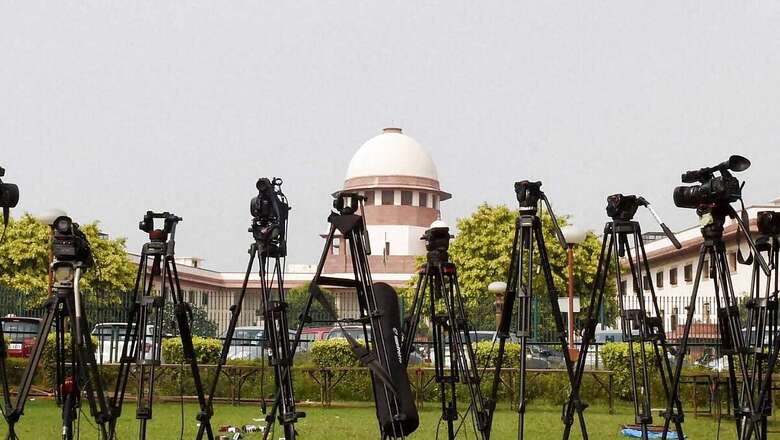
views
The Supreme Court bench led by Chief Justice of India DY Chandrachud on Tuesday refused to recognise marriage as a fundamental right. The court also refused to hold provisions of the Special Marriage Act as void or illegal for failing to include same-sex couples.
The bench agreed that words cannot be read into the provisions of the Special Marriage Act for it to include same-sex couples. The Supreme Court bench believes that any reading of words into the Special Marriage Act would be tantamount to incursions into legislative domain.
It is the sheer legal impossibility of the idea that has deterred the Supreme Court from legalising gay marriage. While the court went on to assert the need for the State to form a committee and look into the concerns of the community and the need to protect them from any kind of harrassment, the bench was clearly of the opinion that the legal ground is not fertile for same-sex marriages to get legal recognition.
Hundreds of laws that would need amendment, the existing regime of personal laws and absence of any common civil code are core reasons as to why the Supreme Court could not undertake this task.
The court has chosen the option of forming a special committee, as suggested by the Union government to address the grievances of the community.



















Comments
0 comment